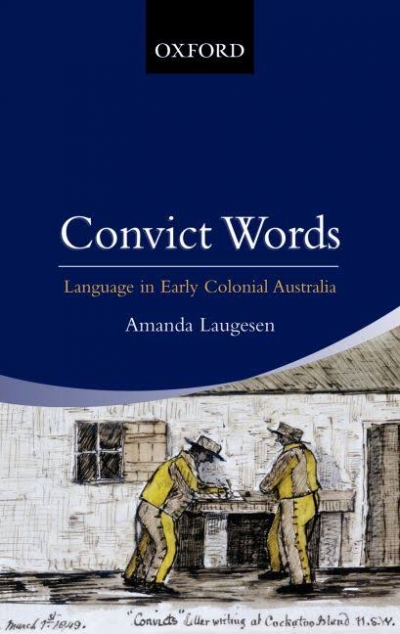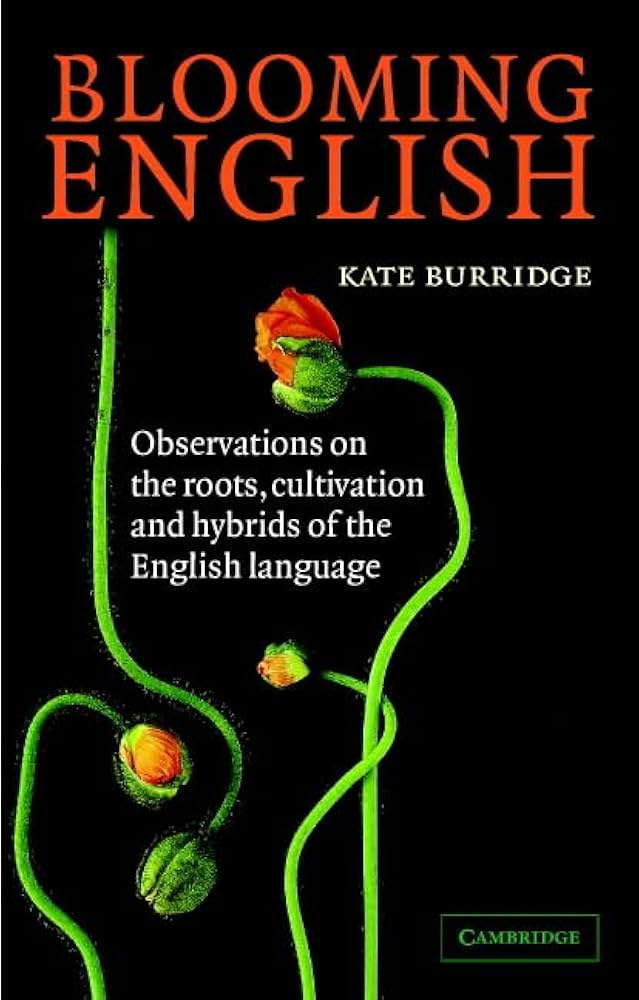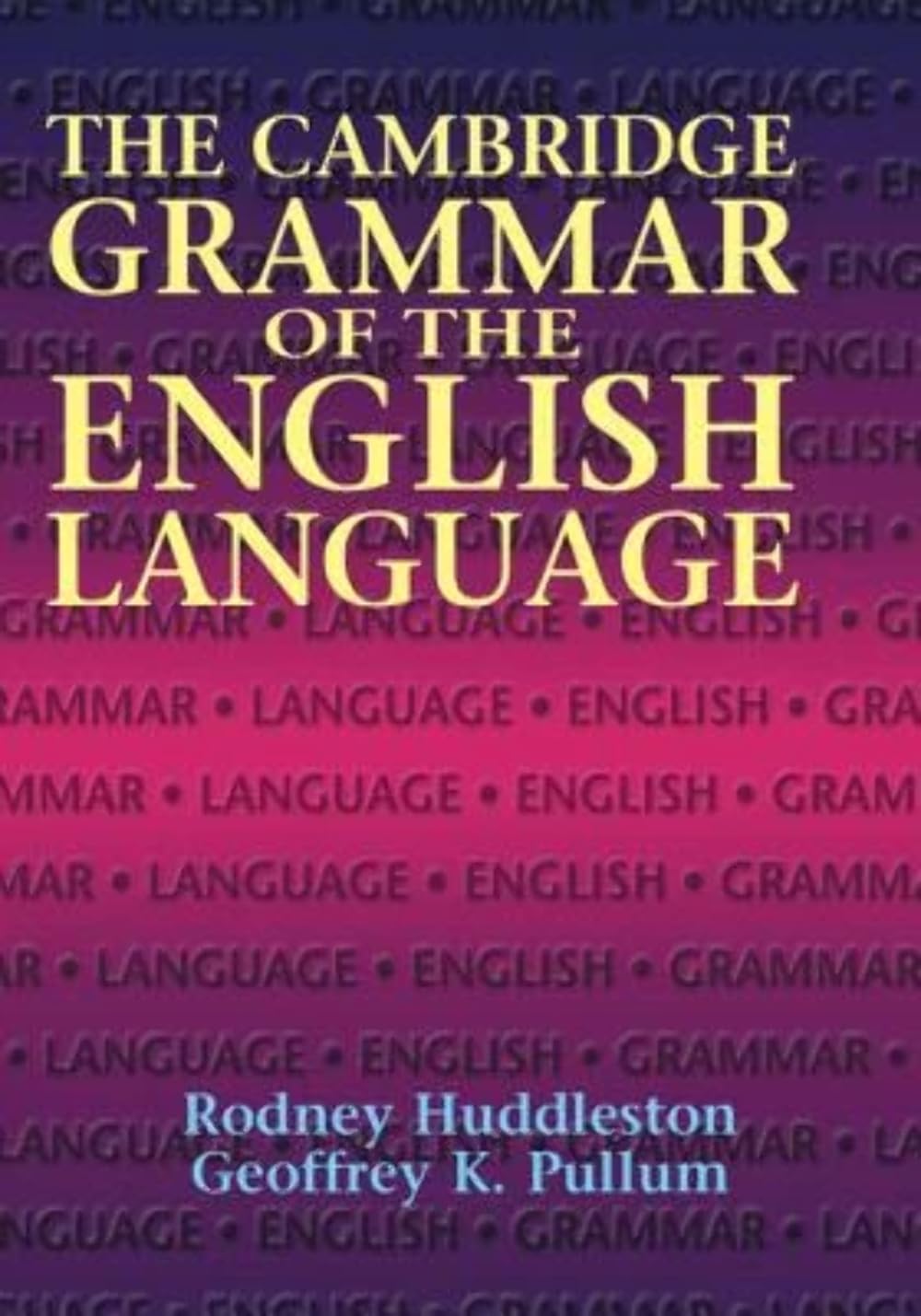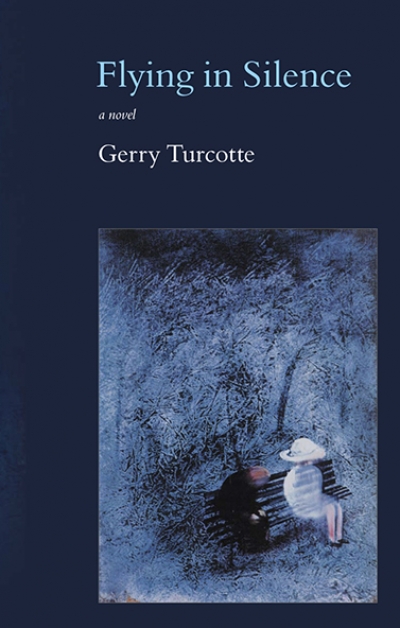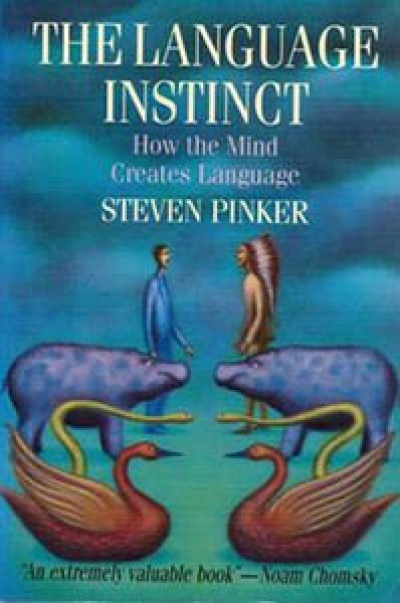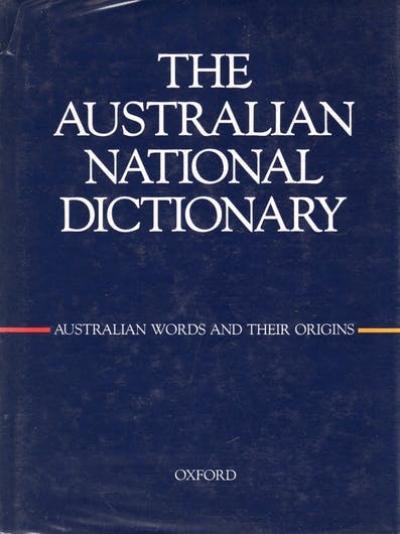Language
The year 1937 was the centenary of the death of modern Russia’s first great poet, Alexander Pushkin. Celebration was mandatory in the USSR, and it wasn’t a good year to ignore the dictates of Stalin’s bureaucrats. So the Soviet satirist Mikhail Zoschenko takes us into a grim but determined apartment block in Moscow, past a slap-dash artistic rendering of the great poet wreathed in pine branches, into a room where the tenants are gathered and a slightly flustered youngish man is preparing to speak. There is a general doziness and smell of old onions.
... (read more)Convict Words: Language in early colonial Australia by Amanda Laugesen
Amanda Laugesen’s Convict Words is a dictionary of the characteristic or salient words of early colonial discourse, the lexis of the convict system and transportation, which survived until 1840 in New South Wales, 1852 in Van Diemen’s Land, and 1868 in Western Australia. It is not immediately clear what sort of readership is envisaged for the book. It would not occur to many people interested in Australian colonial history to address the subject through the words the actors in that history used, and the book does not directly answer most of the questions the enquirer might have in mind, unless of course it were convictism itself. As for word-buffs, the limited range of the target lexis – convict words in this narrow sense, and not necessarily Australianisms – may not have suggested itself as an engrossing topic.
... (read more)These two books differ greatly in scope and style but they are both highly interesting and enjoyable. Tore Janson is concerned with the history of languages over the past 40,000 years and (in a brief coda to his argument) into the next two thousand years. Kate Burridge deals primarily with the present state of English, although, on many occasions, when she is explaining the present state of things, she examines the English of earlier periods. For example, two separate Old English verbs ended up, in a later period, being pronounced the same way, so that let meant both ‘to permit’ and ‘to prevent, stop’. Once this kind of thing happens, it is normal for English to discard one of the meanings. In this case, we discarded the sense ‘to prevent, stop’, although we have retained relics of it in the legal phrase without let or hindrance and in the tennis term let ball.
... (read more)The Cambridge Grammar of the English Language edited by Rodney Huddleston and Geoffrey K. Pullum
I have read many excellent accounts of the English language over the years, but this recent publication by Cambridge University Press is by far the most impressive. In fact, I would say The Cambridge Grammar of the English Language is one of the most superb works of academic scholarship ever to appear on the English linguistics scene. The editors, Rodney Huddleston (Research Consultant, University of Queensland) and Geoffrey K. Pullum (Professor of Linguistics, University of California, Santa Cruz), are leading authorities in this field; so too are their thirteen co-authors. This was a magnificent team effort, spanning more than ten years. Together these linguists have produced a monumental work that offers easily the most comprehensive and thought-provoking treatment of English grammar to date. Nothing rivals this work, with respect to breadth, depth and consistency of coverage.
... (read more)Gerry Turcotte’s Flying in Silence is a book of boyhood memoirs and family secrets, yet it creates a genre all its own. It contains an anatomy of depression and speaks of a family’s inability to cohere. Nevertheless, it swells with compassion and a deep commitment to life and living.
... (read more)Purists and lawyers, sit down. You may need smelling salts or whisky, according to taste. Ready? All right. I predict that your children, or perhaps your children’s children, will read in grammar textbooks that they is the third-person singular pronoun when referring to a person, as well as being the third-person plural pronoun. It will be confined to an animal or a thing.
... (read more)It isn’t difficult to establish conversational tone in writing. And since a column about language and usage ought to be a conversation, we’ll go for that tone. Let’s start with a workout for a current, overused device. There’ve been three of them before this sentence: four now. You’ll find them if you look (Five.) Yes, we’re looking at the conversational contraction, and it’s time to stop counting.
... (read more)The Language Instinct: How the mind creates language by Steven Pinker
An immense irony: Noam Chomsky, one of the left-culture heroes of the 1960s and 1970s –one of mine, at any rate – was in fact all along engaged in a white-anting of the sacred central tenet that unites leftish beliefs, the notion we are products (constructs is the more fashionable term) of our culture. And its optimistic sequel: we can therefore be changed, or improved. Gender roles are supposedly a construct, IQs are supposedly a construct, the fact that all sprint finalists in the Olympics are black-skinned is even supposed to be a cultural construct.
... (read more)The Australian National Dictionary: Australian words and their origins by W.S. Ramson
Apart from Abbott’s booby (the gannet Sula abbotti, which now breeds only on Christmas Island), all entries on the first two pages of the Australian National Dictionary pertain to race and white foundation. Is this mere chance, or do we here have an instance of the knack of language to trap and reticulate human experience from its very springs? Probably a spot of both. Whatever: how apt that a dictionary of Australianisms based on historical principles should start with words such as Aboriginal, abolition act, abscond, and absolute pardon. Absolute pardon is followed by acacia, whose bloom is the emblem of our national besottedness.
... (read more)Some institutions thrive on the blank signification of initials. As with NATO, ACT or indeed ACTU. Cultural items too can have the same austere vitality. OED is an English nonword of high authority (though also the Welsh for ‘age’). Like the American military, the new Australian bureaucracy is much enamoured of dehumanised acronyms and academic life bristles with technical crassness from CTEC to CRASTE.
... (read more)

